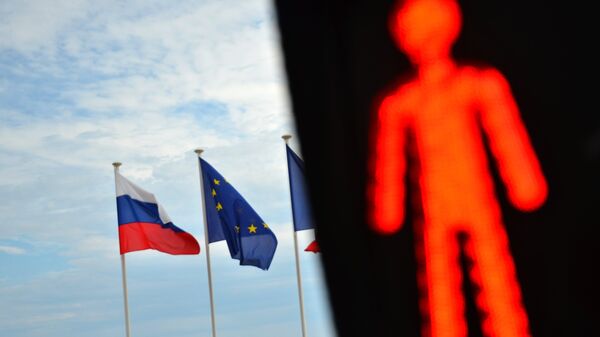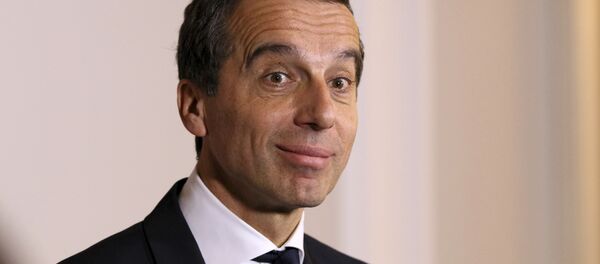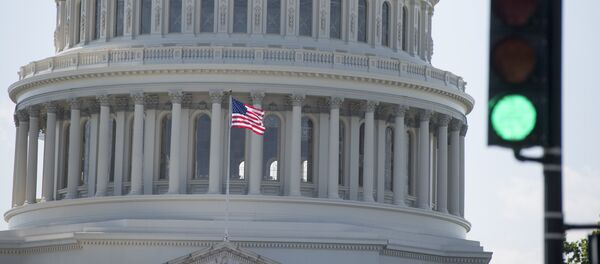European Commission President Jean-Claude Juncker warned the EU College of Commissioners that if the Union’s own energy security interests were not taken into account, Brussels was prepared to take measures of its own in matter of days rather than weeks. Junker also served notice the proposed legislation was intended to put the United States first and could not be allowed to significantly harm the EU nations as a side-effect.
The proposed US legislation is also expected to damage the agreement to build the $10.6 billion North Stream 2 gas pipeline. In April 2017, Russia’s state Gazprom Corporation signed an agreement to move ahead with the giant project with French Engie, Royal Dutch Shell, OMV of Austria and the Germany Uniper and Wintershall companies.
EU RESISTANCE
France and Germany have both spoken out against the proposed new sanctions, which would including penalizing European individuals and companies in a so-called "secondary" boycott for doing business with Russia and Iran.
"The EU, especially Western Europeans, have made it clear that will not accept a secondary boycott — proscribed by international law," University of Pittsburgh Professor of International Affairs Michael Brenner told Sputnik.
The French Foreign Ministry stated that the measure passed by both chambers of Congress would be illegal under international law even if President Donald Trump signed it, or if it was repassed by both chambers with two-thirds majorities over Trump’s veto.
Noted political commentator, philosopher and University of Louvain Professor Jean Bricmont cautioned that the mounting chorus of criticism against the measure from European leaders clearly indicated it would provoke serious clashes with the United States if it was imposed.
"Sometimes… something has to give: the Europeans are upset with the sanctions; there is even a report of the French National Assembly on the extraterritorial nature of US decisions," he recalled.
European opinion makers and politicians still feared to stand up to the United States even to defend their own interests since the end of the Cold War, Bricmont noted.
"Our problem is ideological: because of its ‘victory’ in the Cold War, the US has an immense prestige among the European intellectuals and politicians that make it difficult to take ‘anti-American’ measures… even if it would be in Europe’s interests," he explained.
Therefore even many leaders who recognized the damage that the new US sanctions against Russia would inflict on EU member states did not dare to say so because they feared angering established interests and powers in Washington, Bricmont pointed out.
"Those opposed to the general confrontational stance will remain silent for fear of provoking the Beast in Washington," he said.
US politicians who supported the intensified sanctions on Russia were listening to the same confrontational hawks who had led the United States to failed policies and disaster in Iraq, Syria, Libya, Ukraine, Afghanistan and other theaters, Bricmont recalled.
"It is amazing that those guys who have been wrong about pretty much everything, Iraq, Libya, Syria, Ukraine, Russia and that make the US almost universally hated, and still in charge. This may be the real ‘decline of the West,’" he declared.
The sanctions are not expected to harm major economic interests in the United States because US-Russian bilateral trade already declined precipitously under previous President Barack Obama reaching only $38.1 billion in 2013. However, the European Union still enjoyed a total trade volume worth $213 billion in 2016 although even that was seriously down from $378 billion in 2013.



